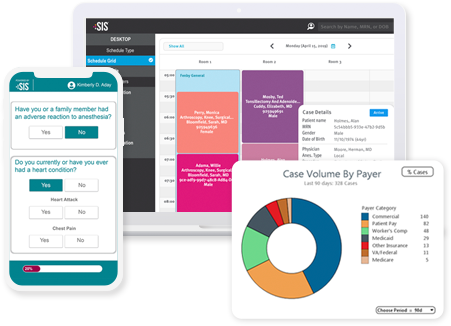
Following a recent webinar presentation on "Stop Guessing, Start Measuring: Choosing Data-Based QAPI Study Topics," Daren Smith, director of ASC Solutions for Surgical Information Systems who previously worked as the director of clinical services for an ASC and surgical hospital management and development company, fielded questions from participants concerning quality assurance and performance improvement (QAPI). Here are those questions, along with Smith's responses. Answers have been summarized for readability.
Q: What role does the medical director play in QAPI programs?
Daren Smith: For the surgery centers that I managed and some others I was involved in, the medical director was typically a contracted third party. Part of this individual's duties and responsibilities as medical director was to serve as the physician representative on the quality assurance (QAPI) committee. We always looked at the medical director as the conduit between the surgery center and its medical staff. It is very important to have someone who can lead and make peer-to-peer recommendations.
In some instances, a medical director may not be willing to fill that position, so you will want to go out and find someone else to provide that medical representation within your quality program. For my ASCs, the medical director was always the person who represented the medical staff on the quality committee. He or she helped design our program and studies from the medical perspective, while we had others take the lead on the nursing, financial, and administrative perspectives.
Q: Do I need a quality assurance committee?
DS: The short answer is that you don't need such a committee. How you approach QAPI should be congruent with the size of your surgery center and the complexity of the surgeries you're performing.
If you're in a single-specialty center that's only seeing about 1,000 cases annually, your quality committee may be comprised of just a few people, such as the administrator and medical director. If you are in a very large ASC, you will likely need to expand that quality committee structure to include representation from all your stakeholders.
When I use the term "committee" concerning QAPI, I'm not suggesting 10 people gathering in a room every week to engage in multi-hour meetings. Like the size of the committee, the manner in which it operates should reflect the specific needs of your ASC.
Q: You talked about identifying QAPI studies via physician and employee satisfaction surveys. How did you conduct these surveys?
DS: I went old school and used paper surveys. While I had very good response rates, I have seen other places use online survey tools — some of which are free, others costing a fee — that yield impressive results.
There are several companies you can partner with for physician and employee surveys that will perform pretty in-depth data analysis that can be used to identify areas for improvement. It really depends upon the level of complexity and detail that you're looking for. You can go from the minimum of complexity — handing out a piece of paper with a survey on it and performing the statistical analysis yourself — all the way to contracting with a third party that can produce charts and graphs and help you identify trends from a larger study group.



















